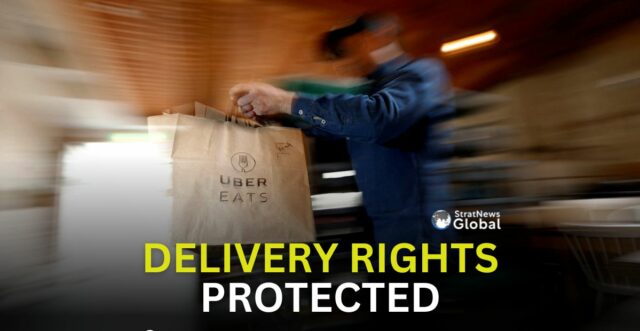Australian food delivery workers are set to secure minimum pay protections following a landmark deal between Uber Eats, DoorDash, and the country’s transport union—an agreement being celebrated as a global first.
According to the draft released Tuesday, couriers would be guaranteed at least A$31.30 (US$20.19) per hour. For many riders currently paid per delivery rather than for time worked, this marks a pay rise of roughly 25%, signaling a major shift in how gig economy labor is valued.
Minimum Pay Deal for Gig Workers
The deal would put them on par with the minimum wage earned by Australian casual workers.
If approved by the Fair Work Commission, the agreement will go into effect next July.
The agreement comes after Australia’s centre-left government passed a law last year that defined gig workers as “employee-like” workers and gave them the right to negotiate minimum pay and conditions.
Uber Eats and DoorDash are the main players in the Australian food delivery market, with Sydney-founded app Menulog set to close local operations at the end of November.
Additional Worker Protections
The U.S. companies must also take out accident insurance for their workers, give them access to their records and provide them with more details about each delivery job, according to the agreement.
“It is a world first set of conditions for gig workers performing this work, and it will result in life-transforming wage increases,” Michael Kaine, national secretary of the Transport Workers’ Union, told a news conference.
“Until this point in time and even as we speak today, there are swathes of workers in the gig economy that are being paid below the minimum national wage.”
Utsav Bhattarai, a Canberra food delivery worker, told the same news conference he had worked through illness and dangerous weather to pay the bills.
Ed Kitchen, Uber Eats managing director for Australia and New Zealand, said in a statement the agreement was a “meaningful step towards building modern laws for modern forms of work” and gave delivery workers protection, security and flexibility.
(With inputs from Reuters)





